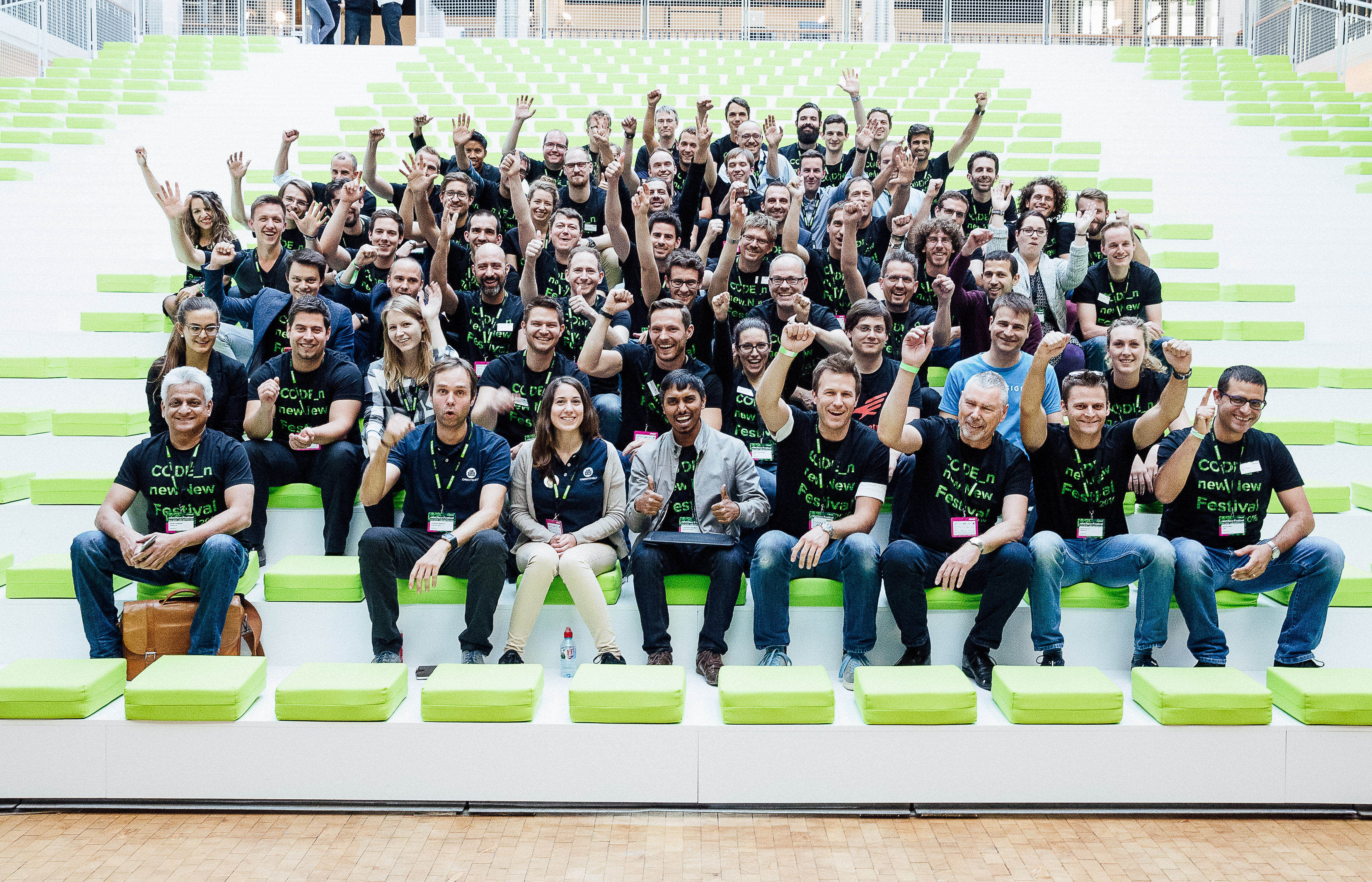MEET OUR CODE_N CONTEST FINALISTS 2018: Evertracker from Germany
![]() It’s time to think of automation in the supply chain and logistics differently. To stay competitive and safeguard sustainable growth, manufacturers must gain control of every step of every process in the value chain. That’s now possible with the help of AI and machine learning! CODE_n CONTEST Finalist Evertracker offers real-time data analysis and notifications of moveable objects, such as goods, trolleys and shipments. Read all about it in our interview with CEO and Co-founder, Marc Schmitt.
It’s time to think of automation in the supply chain and logistics differently. To stay competitive and safeguard sustainable growth, manufacturers must gain control of every step of every process in the value chain. That’s now possible with the help of AI and machine learning! CODE_n CONTEST Finalist Evertracker offers real-time data analysis and notifications of moveable objects, such as goods, trolleys and shipments. Read all about it in our interview with CEO and Co-founder, Marc Schmitt.
Jessica: What is Evertracker all about?
Marc: Evertracker is one of the first artificial intelligences for processes and workflows within supply chains and logistics. Evertracker thinks, learns, and acts like a supply chain or logistics manager. It enables users to optimize the flow of goods, avoid downtimes, release working capital, and make processes greener.
We offer two products. LEAD focuses on optimizing, controlling, and automating flows of goods along the entire supply chain. We mainly work with existing scanning data from barcodes or RFID tags, and goods are followed on an ID level from the supplier to the final assembly line. Our second product is called BRING, which enables customers to gain full control of the actual movement of goods. Customers connect sensors to our platform and if necessary enhance systems with product and production information. This gives customers a tool that enables them to automate and optimize anything moving toward their factory or clients.
On top of these two solutions, we also offer features that automate repetitive tasks, such as accounting and financial controls. Our system can also act as a steering tool for logistics service providers to optimize service quality. Thanks to our technology, customers can respond more quickly to unanticipated situations, plan processes more effectively, automate expensive workflows, and almost completely eliminate risk.
Jessica: How did you come up with the idea?
Marc: We launched in 2014, and in 2015 we introduced one of the first internet of things platforms for logistics. Initially we aimed to enable movable and inaccessible objects to share their current and future status autonomously. I struck upon the idea after suffering from a highly annoying and continual problem: In a “previous life” I worked as an art director for German financial institutions. My job also involved writing important, time-critical annual reports. The final product was delivered to my customers via courier services. Although they were delivered at the agreed time, they were often sent to the wrong location or person. I had to call around to find them. I decided this had to change, so we founded Evertracker. We started out by offering hardware and software solutions. We have now focused on offering a software platform and enhancing processes and value chains.
Jessica: What are you trying to solve?
Marc: In recent years, most manufacturers have started outsourcing large sections of their supply chain and logistics to external providers. This has enabled them to cut costs drastically over the years, but it has also resulted in a lack of transparency and control. Our customers now need to reduce costs and shorten the order-to-cash cycle to free up working capital. They face global competition and need to become even more consumer-centric. To stay competitive and safeguard sustainable growth, manufacturers must gain control of every step of every process in the value chain. They must make more effective and efficient use of resources (material and staff) and external partners. On top of that, companies must also become more efficient so they can cut carbon emissions.
Jessica: How do you contribute to disruption in your field? What technological trends do you see in logistics and supply chains in the future?
Marc: Evertracker gives you complete control over every process of the supply chain and logistics. This changes the way supply chains and logistics work. As our platform learns the different steps and knows where and when to execute various actions, our customers can steer everything more precisely and efficiently. Evertracker not only adds transparency, it also gives customers control. Our customers can enforce efficient pull principles along the entire value chain. For the industry, this is a major disruption (in a positive sense).
From a technological standpoint, I envisage many different technologies entering logistics and the supply chain, such as drones, autonomous trucks, and automated warehouses. However, I believe that genuine disruption comes from technologies that enable manufacturers, or even consumers, to gain control of the entire value chain themselves. I especially feel that artificial intelligence and blockchain technology will be the biggest enablers. I think in the future, products and delivery consignments will make their own journeys through a complex world of production and transportation and travel directly to the end consumer. Everything will be highly efficient, fully transparent, and traceable.
Jessica: Thank you for the interview, Marc!
Meet Evertracker at the new.New Festival 2018 this fall, in Stuttgart!






Write a comment